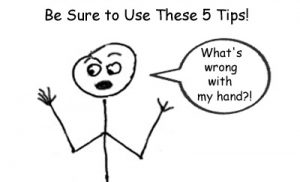
One of my six-year-old son’s favorite gifts this holiday season was a science kit featuring the magic of chemistry. After a few warm-up experiments, my husband and son were working on an experiment guaranteed to have an exciting conclusion: the “Mega-Fizz-Bang!” They got everything ready, carefully measured the citric acid powder into the test tube, and added the baking soda. Imagine our surprise when nothing happened. Huh?
Then it occurred us that this experiment needed water, but the directions had not mentioned that. This experiment did not, as the instructions said “blow our mids” (sic), but the writing in the instruction booklet did, and not in a good way.
Get a free sample proofread and edit for your document.
Two professional proofreaders will proofread and edit your document.
 Bad writing is everywhere! My indignant feelings about bad writing didn’t last long before I recalled the time I wrote out a cake recipe for a friend and forgot to include the baking powder and other times I’ve caught typos, misspellings, and logic issues only too late. Bad writing is everywhere, and it’s often not a lack of knowledge about the mechanics of writing that causes problems, but a flawed writing process.
Bad writing is everywhere! My indignant feelings about bad writing didn’t last long before I recalled the time I wrote out a cake recipe for a friend and forgot to include the baking powder and other times I’ve caught typos, misspellings, and logic issues only too late. Bad writing is everywhere, and it’s often not a lack of knowledge about the mechanics of writing that causes problems, but a flawed writing process.
So, if you want to blow some mids (er, minds) with your writing, follow these tips to improve your writing habits.
Don’t procrastinate.
Begin writing right when you get an assignment, not the night before it’s due. Starting right away means you will have time to follow all the steps needed to produce high quality writing. In the same vein, plan to finish your project at least a day before it’s due. Even if you start early, if you finish late your final editing and proofreading will be rushed and you won’t be able to do as good a job as you would have with more time.
Understand the task in front of you.
Have a conversation with the person who assigned you the project to be sure you are headed in the right direction with your work. A great piece of writing about the wrong topic is not going to get you an A from your teacher or a bonus from your boss.
Follow a process.
The Proofreading Pulse has several great posts to help you here, including “6 Easy Steps for Writing Faster” and “Simple Secret to Writing a Great Story.” Make sure to begin your project with prewriting activities (see the post “How to Outline an Essay” for more information on this). Then draft, revise, draft, and revise some more, as needed.
Proofread.
A thorough proofreading of the science kit instructions would have done wonders for that product! Consider using a professional proofreader if you still need or want to improve your work after you’ve done all you can on your own.
Know Your Weaknesses as a Writer.
Every writer has them. For example, my mechanics are very good and I can come up with creative ways to express ideas, but I tend to spin my wheels trying to narrow down my topic. The answer for me is to spend a good amount of time prewriting, to write down lots ideas before I commit to one. Once I get words on a page my idea starts to take shape, and I can more easily get going. Maybe your biggest issue is time management. Make a work plan. Maybe mechanics are tough for you. Visit a writing center. No matter what the hardest part of writing is for you, spend some time coming up with a plan to not let it become your downfall.
If these tips sounds familiar, that’s probably because they are similar to tips you’d follow to do any activity well: start early, make sure you understand what to do, follow a logical process, and follow through with a strong finish. Happy writing!
Sarah P.
Get a free sample proofread and edit for your document.
Two professional proofreaders will proofread and edit your document.
Get a free sample proofread and edit for your document.
Two professional proofreaders will proofread and edit your document.
We will get your free sample back in three to six hours!